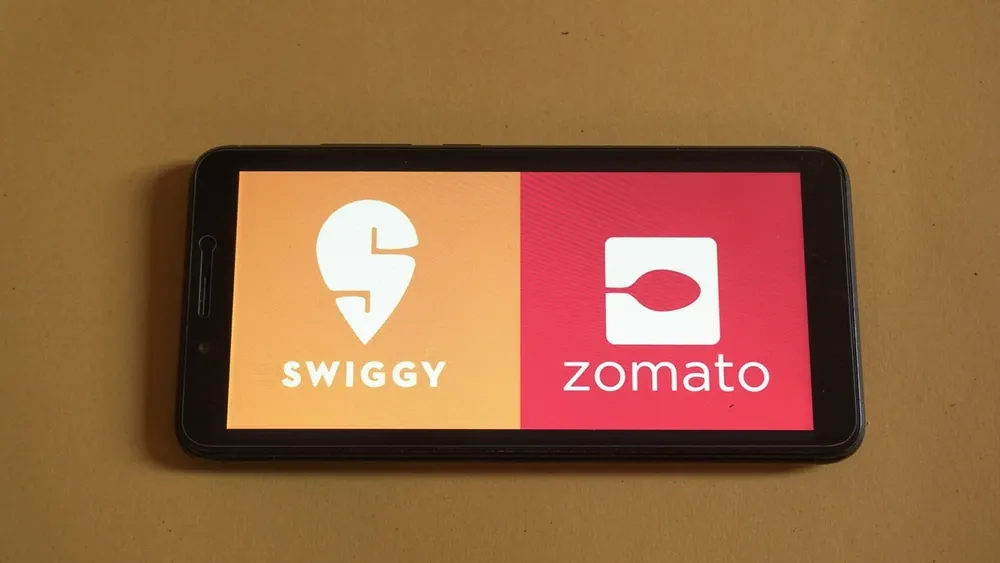Business News
What is 'Private Labelling' and why are Zomato, Swiggy facing backlash from restaurants?
.png)
3 min read | Updated on January 23, 2025, 14:25 IST
SUMMARY
The National Restaurant Association of India (NRAI) plans to approach the Competition Commission of India (CCI) over alleged "private labelling" practices by food delivery platforms Zomato and Swiggy.
Stock list

Top restaurateurs raised concerns over the entry of food delivery aggregators like Zomato and Swiggy into private labelling and dining-in. | Image: Shutterstock
The National Restaurant Association of India (NRAI), representing over half a million eateries nationwide, said it plans to approach the Competition Commission of India (CCI) over alleged "private labelling" practices by food delivery giants Zomato and Swiggy.
The association has raised concerns about the aggregators' entry into quick commerce through alleged private labels such as Bistro by Blinkit and Snacc.
"We will be adding to our petition in CCI about them (Zomato, Swiggy) doing private labels through Bistro and Snacc," PTI quoted NRAI President Sagar Daryani as saying.
What is Private Labelling?
Private labelling refers to the practice where companies develop and market their own products or brands, often leveraging existing infrastructure, resources, or data, to compete within the same ecosystem they operate. In the context of food delivery platforms like Zomato and Swiggy, private labelling involves these companies introducing their in-house food brands—such as Zomato Everyday or Swiggy Daily—and selling them directly through their platforms.
This practice allows platforms to create exclusive offerings that are often marketed alongside, or even in competition with, partner restaurants. For instance, Zomato and Swiggy may use data insights gathered from their platforms to determine popular cuisines, dishes, or price points and then introduce private-label brands catering to those preferences. These meals are typically prepared in third-party commercial kitchens or cloud kitchens.
Daryani alleged that the platforms are procuring food from third-party commercial kitchens for their private-label ventures, including Zomato Everyday and Swiggy Daily, impacting restaurant businesses.
A live poll conducted during the NRAI townhall on Wednesday revealed that 70% of respondents believe private labelling by Zomato and Swiggy is adversely affecting their business. Nearly 69% said they feel powerless in negotiating commission rates with the platforms.
Deepinder Goyal writes to restaurants
Zomato CEO Deepinder Goyal, however, insisted that Bistro is not a “private label” and will not compete with restaurants, seeking to reassure industry associations and food aggregators.
“The Bistro team has no access to data that would create an unfair playing field. In fact, all Zomato data and insights are available to all restaurant partners and the public through Zomato Trends,” Goyal said in an email to Zomato’s restaurant partners.
“In the past, I have expressed that Zomato as a restaurant-aggregator will never compete with its own restaurant partners, unlike players such as Amazon who sell their own private labels on Amazon. Zomato has fully backed this commitment by never opening a physical restaurant and will NOT use Zomato as a distribution channel for kitchens that we do.
A recent Reuters report claimed that an investigation by the Competition Commission of India (CCI) found Zomato and Swiggy engaging in anti-competitive practices that favoured select restaurant chains on their platforms.
According to non-public findings, Zomato entered into “exclusivity contracts” with restaurant partners in exchange for reduced commission fees, while Swiggy offered business growth guarantees to certain outlets on the condition of exclusivity.
In line with the CCI’s confidentiality rules, the investigation findings have not been made public but were shared with Swiggy, Zomato, and the complainant restaurant groups in March 2024, reported Reuters.
By signing up you agree to Upstox’s Terms & Conditions
About The Author
Next Story

